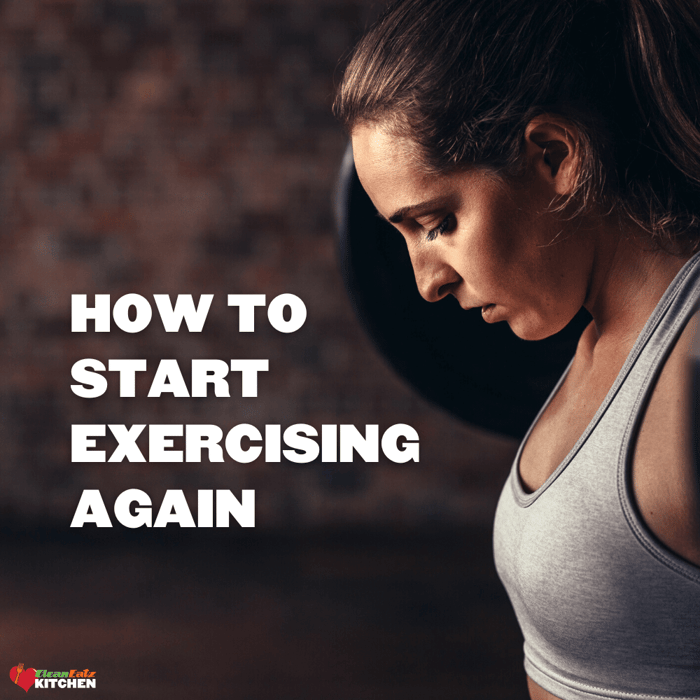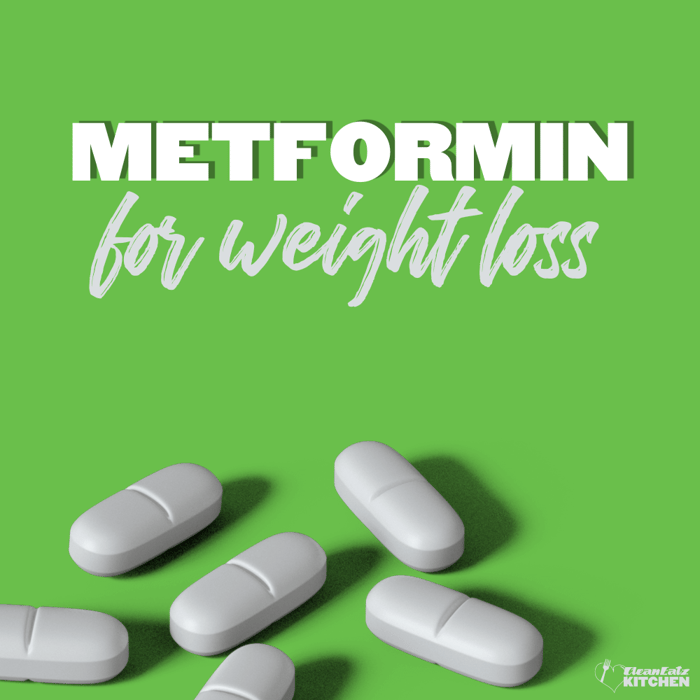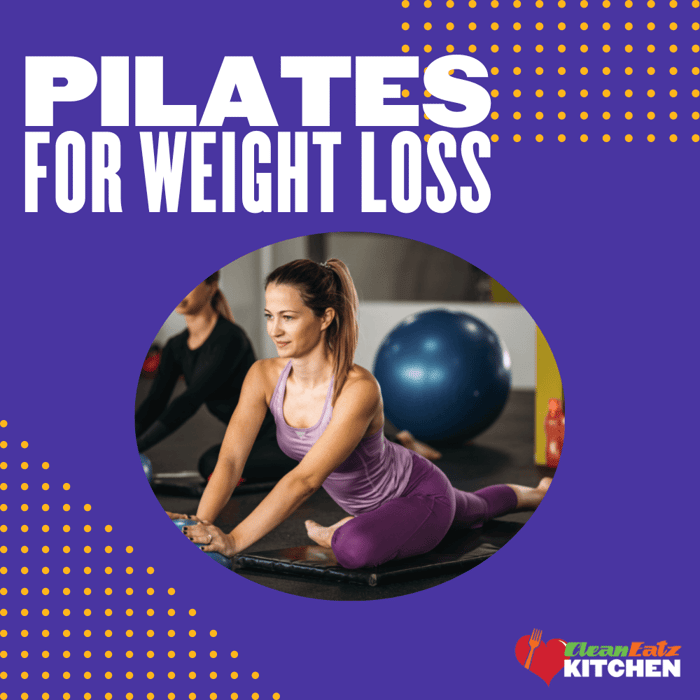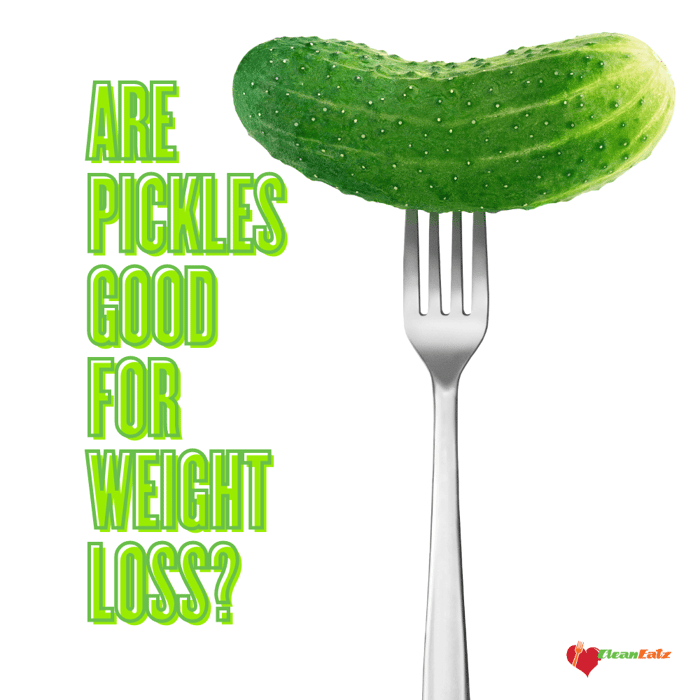How to Start Exercising Again (Without Burning Out): A Realistic 4-Week Plan

Jason Nista
Exercises & Fitness
|
Weight Loss
12/17/2025 10:06am
11 minute read
Quick Answer: Start embarrassingly small. Seriously. Ten minutes, three times a week. Your only goal for the first two weeks is showing up—not crushing workouts, not getting sore, just moving. The fitness comes back faster than you'd expect (research shows about 5 weeks to regain what you lost), but only if you don't burn out in week one.
Why Starting Again Feels So Hard
You used to work out. Maybe you were even pretty fit. Then life happened—an injury, a new job, a baby, a move, a global pandemic, whatever. And now the gym feels like a foreign country where you've forgotten the language.
Here's what's actually going on: it's not that you're lazy or lack discipline. It's that your brain has successfully built a habit of not exercising, and habits are stubborn things. Every day you don't work out reinforces the pattern. The couch gets more comfortable. The excuses get easier.
The other problem is that you remember what you used to do. You remember running 5 miles or squatting 200 pounds or doing an hour-long spin class. And the gap between that person and where you are now feels impossible to bridge. So you don't start at all.
This is the trap. And the only way out is to forget who you were and start where you are.
The Good News About Muscle Memory
Here's something encouraging: your body hasn't forgotten everything. A 2024 study from Finland put this to the test. Researchers had people lift weights for 10 weeks, then take 10 weeks completely off, then return to training. The result? It only took about 5 weeks to get back to where they'd been before the break.
Your muscles retain a kind of cellular memory from previous training. The pathways are still there—they just need to be reactivated. So while that first week back might feel rough, you're not truly starting from zero. You're waking something up.
The catch is you have to actually start. And you have to start smart enough that you don't quit after three days of crippling soreness.
The First Two Weeks: Just Show Up
Your only job for the first fourteen days is building the habit of moving. Not getting fit. Not losing weight. Not hitting PRs. Just showing up.
That means keeping workouts short—10 to 20 minutes max. It means staying at an intensity where you could hold a conversation. It means finishing each session thinking "I could have done more" instead of collapsed on the floor questioning your life choices.
This feels counterintuitive. You want results, so you want to go hard. But going hard too soon is exactly why most restart attempts fail. You crush yourself on Monday, you're too sore to move on Wednesday, you skip Friday because what's the point, and by the following week you're back on the couch telling yourself you'll try again next month.
Short, easy sessions that you actually complete build momentum. They prove to your brain that exercise is something you do now. Once that identity shift happens—once you're "someone who works out" again—you can gradually increase the challenge.
A Simple Week 1 Schedule
Here's what a realistic first week looks like. Nothing fancy—just enough to build the habit:
- Monday: 10-minute walk (outdoors or treadmill at slight incline)
- Tuesday: 10-minute bodyweight circuit (squats, wall push-ups, planks—see below)
- Wednesday: Rest or gentle stretching
- Thursday: 10-minute walk or easy bike ride
- Friday: 10-minute bodyweight circuit
- Saturday: Optional 15-20 minute walk
- Sunday: Rest
That's it. If you do this for a week without skipping, you've already beaten most restart attempts.
What Your First Month Might Look Like
Week one, aim for three or four sessions of about 10-15 minutes each. Walk on an incline, do some basic bodyweight movements, ride a bike at an easy pace. Nothing heroic.
Week two, keep the same frequency but add 5 minutes per session. Still conversational intensity. Still leaving something in the tank.
Weeks three and four, you can start pushing a little. Add some actual resistance—light dumbbells, resistance bands, whatever you have access to. Extend sessions to 20-30 minutes. Maybe include one day where you work a bit harder, but keep most of your training at that moderate "I could do this for a while" pace.
By the end of month one, you'll have exercised 12-16 times. That's 12-16 deposits in your habit bank. That matters more than any single workout.
Two Simple Workouts You Can Do Anywhere
You don't need a gym to restart. These two circuits cover the basics—pushing, pulling, squatting, hinging, and core. Alternate between them on your strength days.
Workout A (20-25 minutes)
- Bodyweight squats (or sit-to-stand from a chair): 3 sets of 10
- Push-ups (on knees or against a wall if needed): 3 sets of 8
- Glute bridges: 3 sets of 12
- Plank hold: 3 sets of 20-30 seconds
Workout B (20-25 minutes)
- Reverse lunges: 3 sets of 8 per leg
- Bent-over rows (with dumbbells, bands, or filled water bottles): 3 sets of 10
- Hip hinges (hands on thighs, push hips back): 3 sets of 10
- Dead bug or bird-dog: 3 sets of 8 per side
Rest 30-60 seconds between sets. The weights should feel moderate—you should finish each set feeling like you could have done 2-3 more reps. If you're gasping and shaking, you're going too hard for week one.
The Two Things That Actually Matter
When you strip away all the complexity—the optimal rep ranges, the perfect programs, the macro calculations—restarting exercise comes down to two things: consistency and progressive challenge.
Consistency means doing something most days, even when it's brief and easy. A 10-minute walk counts. A few sets of squats in your living room counts. Showing up imperfectly beats skipping perfectly every time.
Progressive challenge means doing slightly more over time. Not dramatically more—slightly. Add 5 minutes. Add 5 pounds. Add one more rep. Small increases, applied consistently, lead to remarkable changes over months. But you have to survive long enough to get there, which is why the "slightly" part matters.
For a deeper dive into building an effective long-term exercise routine—including how to structure cardio and strength training for fat loss—check out our Complete Exercise Guide for Weight Loss.
Dealing With Soreness
You're going to be sore. That's normal. But there's productive soreness and there's "I overdid it" soreness.
Productive soreness shows up a day or two after training, feels like a dull ache in the muscles you worked, and doesn't prevent you from moving normally. You might feel it when you sit down or reach overhead, but it's manageable.
"I overdid it" soreness makes you walk like a robot, lasts more than three or four days, and makes you dread your next workout. If this happens, you went too hard. It's not a badge of honor—it's a sign to scale back.
The goal is to stay in that productive zone. A little reminder that you worked out, not a week of suffering. When in doubt, do less than you think you should. You can always add more next time.
A Quick Warm-Up That Actually Matters
Don't skip this. Five minutes of warming up makes your workout feel easier and reduces injury risk—especially important when your body isn't used to moving yet.
- 1 minute: Brisk walk or marching in place
- 1 minute: Arm circles (forward and backward)
- 1 minute: Bodyweight squats to comfortable depth
- 1 minute: Hip circles and gentle leg swings
- 1 minute: Easy plank or hands-and-knees position, rocking back and forth
That's it. Nothing complicated. Just get blood flowing and joints moving before you ask them to work.
Common Mistakes (And How to Avoid Them)
Most people make the same errors when restarting. Here's what to watch for:
- Going too hard too fast: The most common mistake. You're excited, you want results, so you crush yourself—and then you're too sore to move for a week. Start lighter than feels necessary.
- Skipping strength training: Walking is great, but resistance training builds muscle, boosts metabolism, and prevents the aches that come with age. Include it from day one, even if it's just bodyweight.
- Random workouts with no progression: Doing whatever you feel like each day doesn't build fitness. Pick a simple plan (like the one above) and stick with it for 4 weeks before changing anything.
- All-or-nothing thinking: "I only have 10 minutes so why bother." Ten minutes is better than zero. A short workout beats a skipped workout every time.
- Neglecting sleep and food: You can't out-train a terrible diet or chronic sleep deprivation. These basics matter more than any workout program.
Making It Stick
The practical stuff matters. Put your workout clothes out the night before. Schedule exercise like an appointment you can't miss. Pick a time that works with your life, not against it—if you're not a morning person, stop trying to wake up at 5 AM to run.
Find something you don't hate. This sounds obvious, but people constantly force themselves into workouts they despise because they think it's what they "should" do. If you hate running, don't run. Walk, bike, swim, lift weights, do yoga, play basketball—whatever gets you moving and doesn't make you miserable.
Consider finding a partner or a community. It's harder to skip when someone's expecting you. Even an online accountability group can help. The social pressure isn't weakness—it's a tool.
And track something, even if it's just checking off days on a calendar. Seeing a streak of completed workouts creates its own motivation. You don't want to break the chain.
Don't Forget to Eat
Exercise without adequate nutrition is like trying to drive a car without gas. You need fuel to perform and recover, especially protein to rebuild muscle tissue.
You don't need to overthink this. Eat enough to support your activity. Get protein at most meals. Stay hydrated. If you're trying to lose fat while getting back in shape, a modest calorie deficit works—but don't slash calories dramatically while also ramping up exercise. That's a recipe for feeling terrible and quitting.
If meal planning feels like too much right now on top of restarting exercise, that's exactly why we built our Build Your Meal Plan option—pre-made meals with the protein and calories already figured out, so you can focus your willpower on getting to the gym.
The Bottom Line
Restarting exercise isn't about finding the perfect program or the optimal workout split. It's about rebuilding identity. You become a person who exercises by exercising—even when it's brief, even when it's imperfect, even when you don't feel like it.
Start small. Stay consistent. Progress gradually. Be patient with yourself. Your fitness will come back faster than you expect, but only if you're still showing up a month from now.
The best workout for getting back in shape is the one you'll actually do. So pick something, start today, and keep it simple. The complexity can come later, after the habit is locked in.
FAQs
How long does it take to get back in shape after a break?
Less time than you'd think. A 2024 Finnish study found that people who took 10 weeks completely off from lifting regained their previous strength in just 5 weeks of training. Your muscles remember—they just need a reminder.
Should I do cardio or weights when starting back?
Both, but don't overthink it. Aim for 2-3 short strength sessions and 2-3 easy cardio sessions per week. The specific split matters less than actually showing up consistently.
How sore is too sore when restarting exercise?
Some soreness is normal and expected. But if you're so sore you can't sit down without wincing or you're still hurting 4-5 days later, you did too much. Scale back and build up more gradually.
What if I can only exercise for 10 minutes?
Ten minutes counts. In fact, starting with just 10 minutes is one of the smartest things you can do—it builds the habit without the intimidation factor. You can always do more once you're consistent.
Related Articles
Metformin for Weight Loss: Does It Work?
9 minute read
Is Pilates Good for Weight Loss? What You Need to Know
6 minute read



